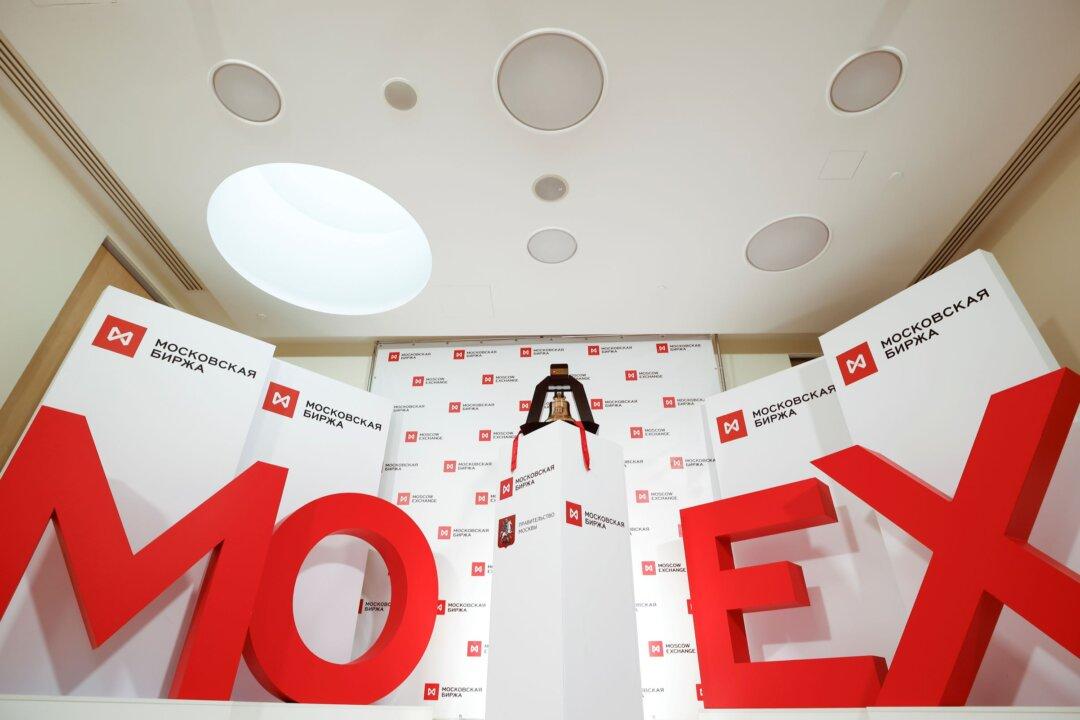Russia’s stocks jumped on Thursday, the first day of trading in almost a month in the wake of its troops entering Ukraine, with gains in commodity stocks offset by a drop in a flagship bank and airline, in volatile trading backed by the promise of support from sovereign wealth fund money.
The government said on March 1 it would channel up to 1 trillion roubles ($10.5 billion) from its rainy-day National Wealth Fund (NWF) to buying Russian stocks roiled by a massive sell-off last month.





